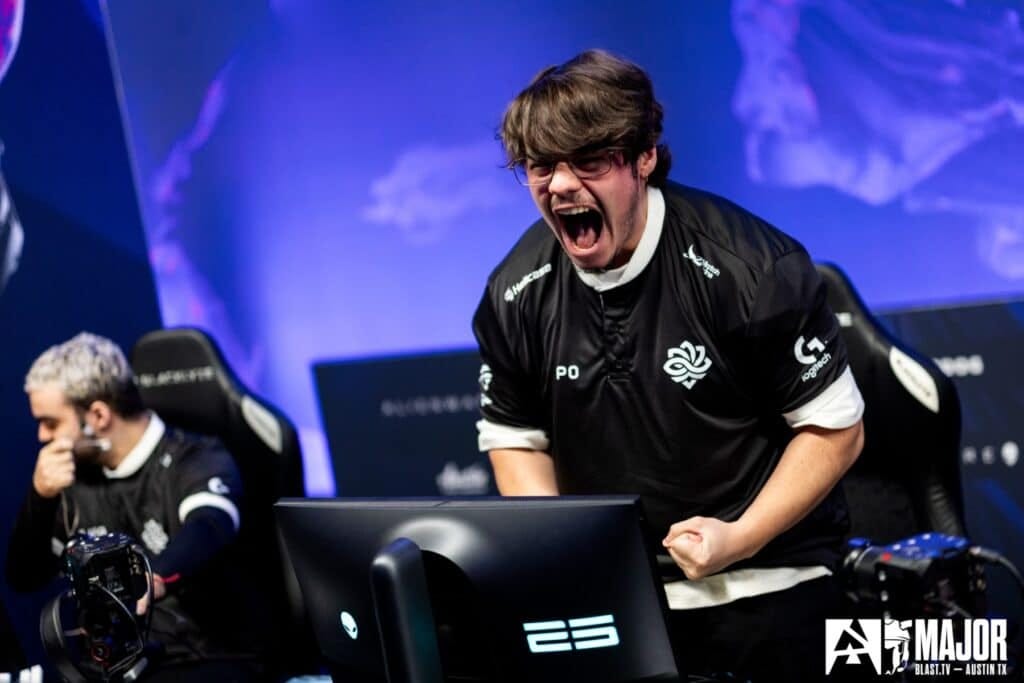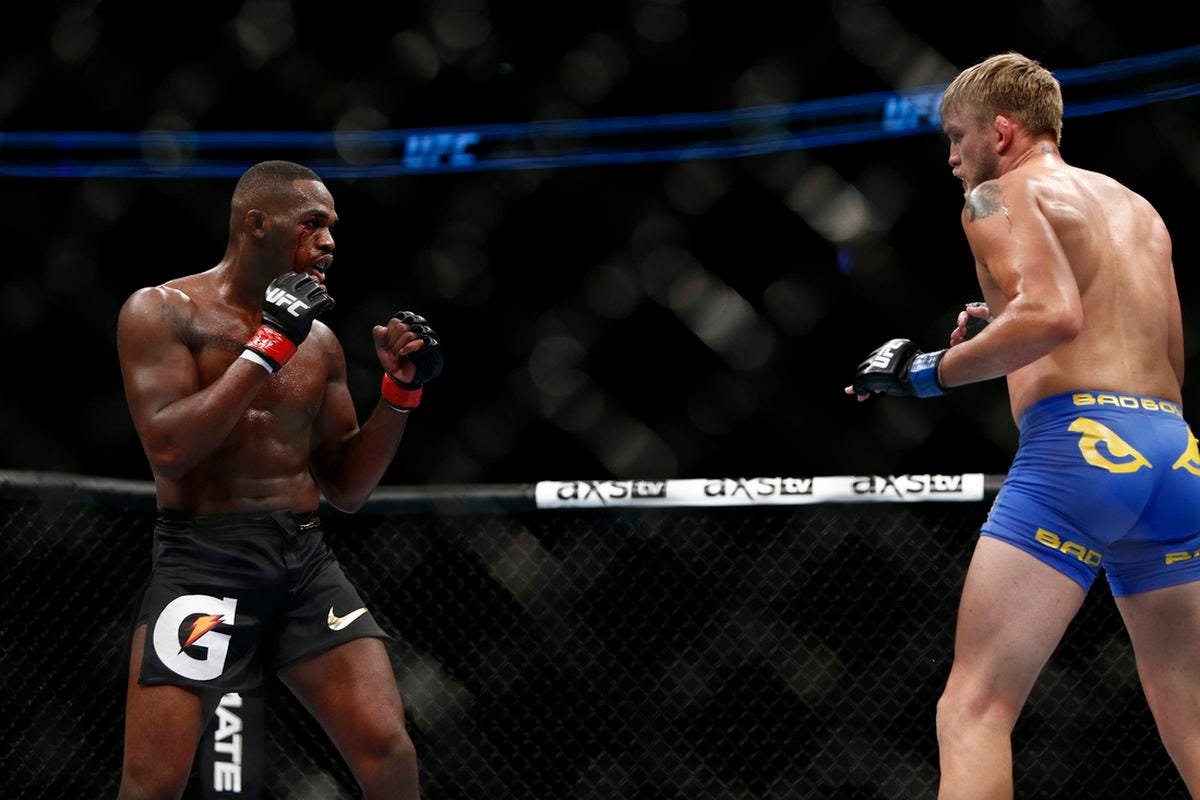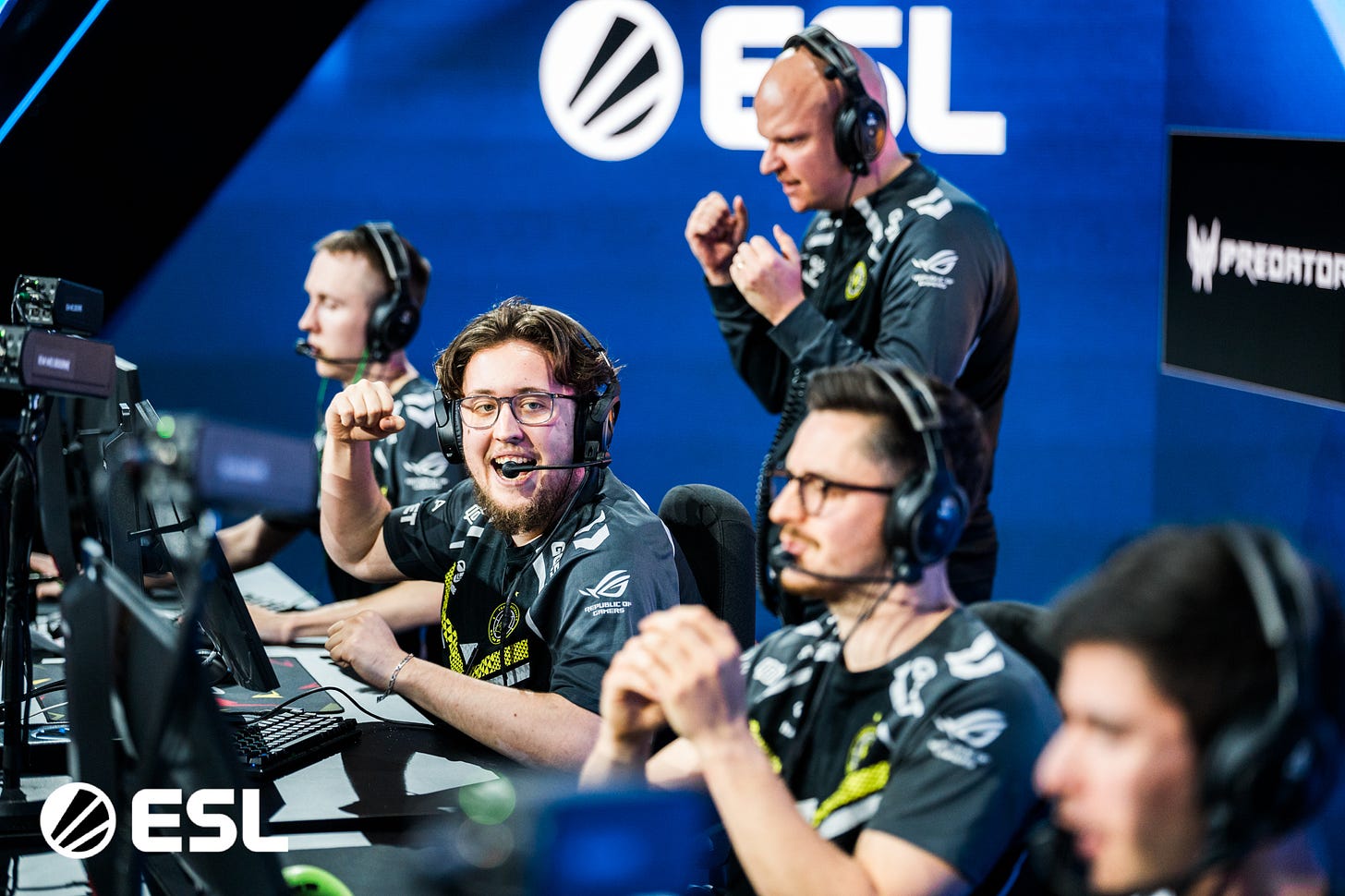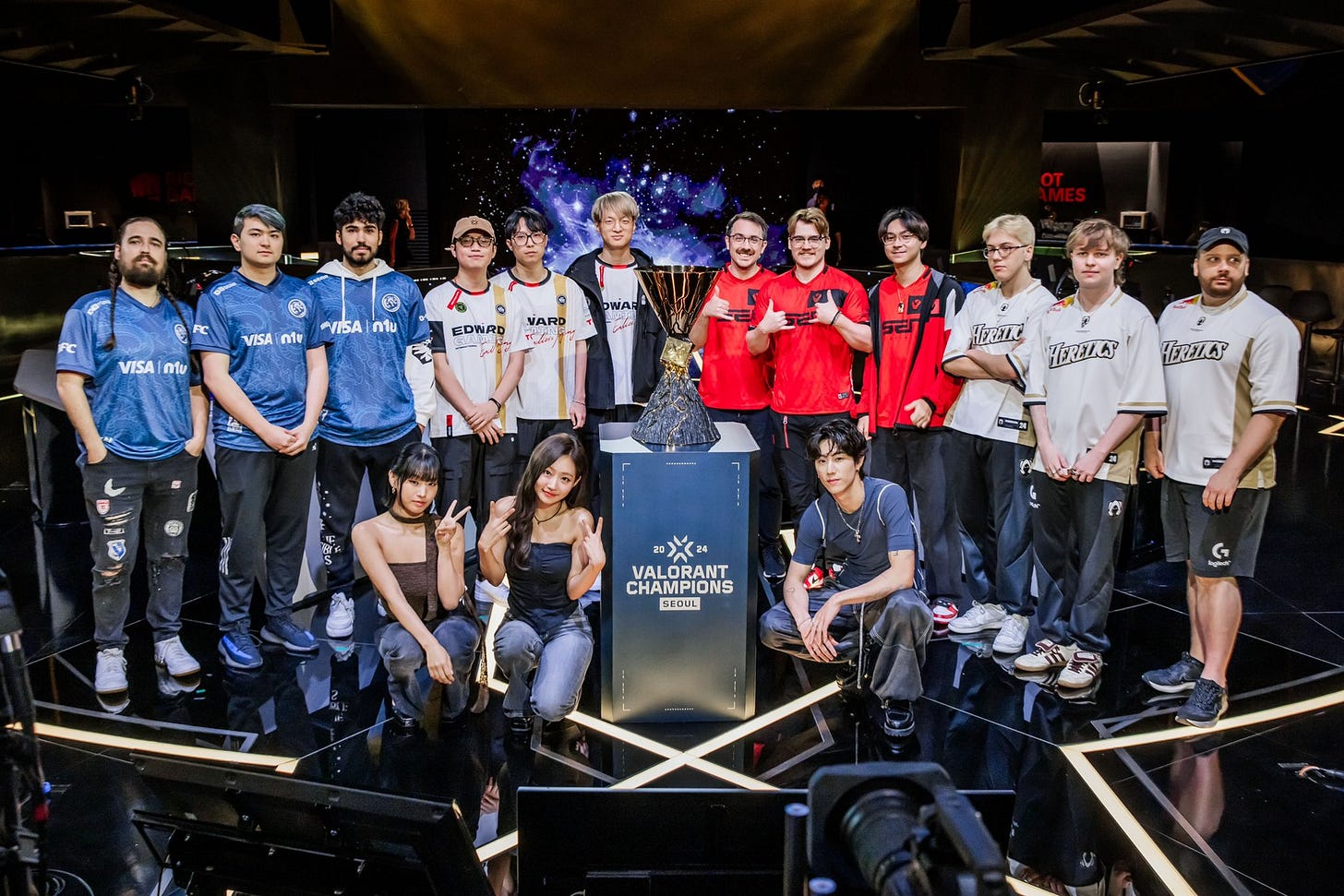Best-Of-None - Make Majors Great Again!
Majors went from the best tournaments in Counter-Strike esports to laughable and with the would-be great narratives leaking through easily addressable format holes.
Valve's majors are the defacto world championships of Counter-Strike yet contain flawed format features that have reduced the events to being more luck-based than even an average circuit event. What's more they can now be dubbed the worst S tier events on the CS circuit, as every other tournament organiser has embraced all Best-of-three (Bo3) group stage play and a Bo5 final.
This piece will outline the problems with the current format features and how, even simply by looking elsewhere in the circuit, Valve can implement changes to make their majors the best events in the world again.
Origin story
When Valve first introduced official majors to Counter-Strike the game was elevated to a new status as a tier one esport again, where many had quit or even lost interest due to CS:GO looking to become a red-headed stepchild of the franchise locked away in the attic a la Source, and the prize money, and years later stickers, made the economic side of CS legitimate in a way it had never been prior. Where in CS 1.6 majors were unofficial and decided by the scene; Valve had implemented a real world championship for its new CS title.
For years the majors sat above every other event. Katowice and Cologne initially earned their status as epic spectacles thanks in part to being majors and it wasn't until years later, and some drama with Valve, that those events became so great outside of major status that they could rival the majors and thus I coined the term "prestige events" to describe those two specific events and the majors as the most important crowns to seize during a year.
By 2016 the prize money had hit unthinkable heights, reaching the million dollars overall pool and half a million first prize still enjoyed today. In 2025, with changes across the rest of the circuit, Valve's majors are the worst S tier competitions on the circuit. Their formats relics of past days and sometimes even containing elements seemingly nobody but Valve wants.
The major, thanks to its name and status, is still career-defining and yet it features an inferior qualification and format to the rest of the circuit. Think about the big matches of this last major and they pale in comparison to what one can expect at a Katowice (soon to be Krakow) or Cologne or even a standard fare circuit event like IEM Melbourne.
Best-of-None
Bo1 is how Counter-Strike began back in the 2000s when the game was new, events were not professional, players had no salaries and an entire tournament lasted three days. I have yet to hear a modern fan or professional give a single upside of continuing to host Bo1s beyond scheduling concerns. They are a time and cost-saving measure that made logical sense when a tournament organiser needed to whittle down an initial field in a single day or couldn't afford more arena days, the most costly part of the event, for their play-offs.
Now there is little necessity for them and they stand simply as a hinderance to great matches and runs. If there is a time concern then the major can remove the freshly added third swiss system stage and go back to two swiss stages into the same play-offs. Stage 1 proved to be about as epic as a CCT and teams from that stage were overwhelmingly also-rans who exited the event without incident.
Not a single stage 1 team made the play-offs of the event and with the MRQ changes the best teams look as if they will all qualify via circuit points so Stage 1 doesn't even act as a net to catch good teams who slipped through the cracks.
The main angle employed by Bo1 enjoyers, though I suspect they are just cynical fans of the specific underdog masquerading as egalitarians fighting more generally for the little guy, is that Bo1 upsets are exciting and create unique narratives the audience loves to follow. That's actually an incredibly selfish and myopic perspective.
Thanks to sites like escharts it can be factually proven that big upsets produce later match-ups which are viewed at a significantly lower rate than marquee names, of whatever form, battling each other. Even a bad FURIA vs. NAVI play-off match will bring a lot more viewership than if Legacy faces 3DMAX. So the audience angle isn't even true or real. There is no underdog effect. In an industry which relies on eyeballs tuning in that alone serves as a point to suggest Bo1s hurt the major and its later stages and splay-offs.
The notion it's thrilling to see up and coming players far exceed past career highs and make miracle runs into later stages or the play-offs is far less compelling when you consider the framing that this is the world championship. An event to determine who the best team in the world is, theoretically, at the most important moments of the year.
It's not a reality TV talent show where you're pulling for a plucky nobody who overcame a horrifying illness with courage or who seeks to escape a mundane life for their dream of entertaining the world. Counter-Strike esports it not a charity. The opposite: it is a ruthless contest of the best in the world looking to assert dominance over each other.
Best-of-three is best for you and me
Even if you do ascribe to the notion you want exciting upsets then surely you want them to be legitimate and not questioned or dismissed by critics? The best way to accomplish that goal is make all of the matches prior to the final into Bo3 series. If Legacy had beaten Vitality in a Bo3 then there would be no series streak of any kind for Vitality to cling to and Legacy would go down forever as the squad that slayed the unbeatable kings, much as Dosia's Virtus.pro famously ended NiP's 87-0 match streak in early 2013.
Instead, one can easily put aside an opening Bo1 against a nobody team with two stages of recent play under their belt going against the best team in the game, who hadn't played an official games in weeks, and beating them in an outrageous fluke that looked nothing like the form of Vitality in the rest of the stage, where they gave opponents something like an average of five rounds per map!
Bo3 is not just superior due to a minimum of an extra map of play to determine the victory but also due to how the veto phase of Bo1 and Bo3 differ. Many will naively think of a Bo1 as being the same as a map played in a Bo3 but the only comparison would be the deciding map of the series, where underdogs will rarely be playing thanks to the ability of the superior team to defeat them on their map pick and sweep the series. Even then that deciding map has both teams warmed up over two maps of play. Bo1 allows a team to theoretically lose in only 13 rounds of play!
When a Bo3 enters its veto phase an inferior team will see its map pool tested more due to only getting a single ban and thus leaving opening their worst for the superior team, a status which tends to go hand-in-hand with having a larger map pool, can pick into cynically. In a Bo1 both teams remove three maps and so the inferior team can take out half of the map pool prior to the selected map and thus cover most of their biggest weaknesses.
So the inferior team may have played better but only after having their weaknesses masked by the format. Oh and what do these stages eventually decide? Who will play in the play-offs. So you get teams who could only have won the Bo1 against that opponent qualifying to a play-offs where they will do nothing of note in all Bo3 play. You have sacrificated a play-off match and sometimes bracket for the cheap thrill of a wild unexpected result in a single map of play!
I won't even make the case for double elimination play-offs here as fixing the group stage seems more pressing. The section at the end addressing other esports' major play-offs will make the point by implication.
Championship rounds
In sports like mixed martial arts (MMA) and tennis the format is used to indicate the significance of the match. ATP 1000 Masters events in tennis, the level below the Grand Slams, play only Bo3s so that when the Grand Slams, equivalents of the CS majors, come around it is clear these are the career-defining tournaments due to switching to Bo5 sets.
In the UFC, main events and championship fights switch from the standard three rounds to five and the fourth and fifth rounds are dubbed "the championship rounds" because they require more from the fighter and may seem him forced to his limit and needing to dig deeper than ever before. These are well received as methods of showcasing who the best in and forcing competitors to hit the heights of greatness.
No three round fight, no matter how good, can match the great epic five round title fights. Similarly, even an amazing Bo3 ATP 1000 final doesn't come close to a match like the Australian Open 2009 final between Federer and Nadal.
Consider that in Counter-Strike I am not making a controversial statement by suggesting the IEM Melbourne final where Falcons had Vitality at championship point on the fifth map but could not close was more epic and excellent than the recent major final between MongolZ and the same Vitality where MongolZ scrapped to win map one but then were dunked on for two straight maps to see the trophy going inevitably to Vitality.
The new gold standard
Bo5 finals are now the new gold standard for CS finals and just as every S tier events has full Bo3s in group play so they have all adopted Bo5 finals and are richer and more impressive spectacles for having done so. Most of the arguments against Bo5 finals have been massively reduced by the change to maxrounds 12 (mr12) as opposed to 15 and individual game lengths being shortened.
The phenomenon can be compared to a format change elsewhere in First Person Shooter (FPS) esports history. Quake 3 was famously played with Bo3 finals the majority of the time as an individual duel took 15 minutes or fewer. With QuakeLive's release the duel time limit was cut down to 10 minutes and suddenly a Bo3 was too short a contest to decide a great champion and Bo5 quickly took over and has been the gold standard since.
Bo5 tests more of a competitor's map pool, an argument consistent across all of these sections, and so goes further towards determining who the team playing better overall is. A single fluke round on a single map no longer can get a lesser squad so close to the trophy. Now they must do more to earn the series win. Isn't that a core purpose of a grand final? Just as in a group stage if an underdog wins a Bo3 against a favourite everyone must tip their hat so a lot of very close Bo3 finals which are still argued today would be much more easily accepted if the underdog had managed three wins in five!
A silly reductio ad absurdum style argument sometimes brought up is that if the preceding is true than a Bo7 will even further force greatness from the teams. This argument is naive or ignorant at best as it ignores that eventually players will be utterly fatigued and tournaments may have broadcasts which go from a potential three to four hours to something like nine straight! That is logistically and financially untenable and makes its own case for not going beyond Bo5.
What does qualifying even mean?
A key aspect of the announcent of the Valve Ranking System (VRS) that I cheered on was the notion that, much as in sports like tennns, having rankings based on the circuit's results would mean the top teams all made it to the major and could never flop at a single qualifier, like reigning major champions Outsiders did prior to BLAST Paris 2023. This ensures the major can contend to have the best field in the circuit.
The current model has more variance and silly upsets that ruin later stages. A team like GamerLegion was a contender to reach play-offs at every event they attended in the circuit and ranked ninth in the world (by HLTV) prior to the event's first match. Alas they had to compete in an online MRQ (Major Regional Qualifier) and gamble tournament lives on Bo1 play against squads that wouldn't beat them in a Bo3 and wouldn't have a chance on LAN. All to qualify to a LAN tournament which then whittles down teams to play in Bo3 play-offs.
Likewise, an up and down season for Astralis saw them peak towards the end and their team hit a HLTV ranking of 12th and look capable of a play-off run only to not even make the major. Meanwhile the world watched on as nobody squads from the Americas and Asia played games which were never going to get them anywhere near the play-offs and they will not replicate the results of in the rest of the circuit.
The rest of the scene had already figured out to populate their fields. ESL would use HLTV rankings for Katowice and Cologne and thus you could be assured the top teams made the event and the next lot had a chance on LAN in Bo3s to earn a spot. Yet again Valve provides an inferior alternative to solutions applied elsewhere in the scene to great effect.
World championship of flukes
What is most shameful about this predicament is seeing other games with major events boasting such superior formats. Dota2's The International (TI) has a double elimination play-offs bracket of Bo3 play with 16 teams reaching that portion and a Bo5 final to determine the champion.
Even League of Legends, a game often considered for noobs in contrast to Counter-Strike, has the upcoming Mid Season Invitational (MSI) that has an eight team double elimination bracket with Bo5 series all the way, equivalent to Bo3 in terms of how the format differently affects a single game entity MOBA as contrasted with round-based FPS play.
The dreaded VALORANT, labelled by CS fans as "child's game", features double elimination all-Bo3 play-offs and a Bo5 final at its VCT Champions event which is their parallel to the CS major.
The rest of the CS scene has shown the way and the major is a few tweaks away from being the most exceptional and impressive event on the circuit. Give Counter-Strike an excellent major format and what esport can hold a candle to it? Make majors great again!













Hope Valve does their one (1) good deed of the season for CS fans on this matter. Always enjoy how Thorin can eloquently build arguments for matters which should be so simple in CS, but for some reason are not.